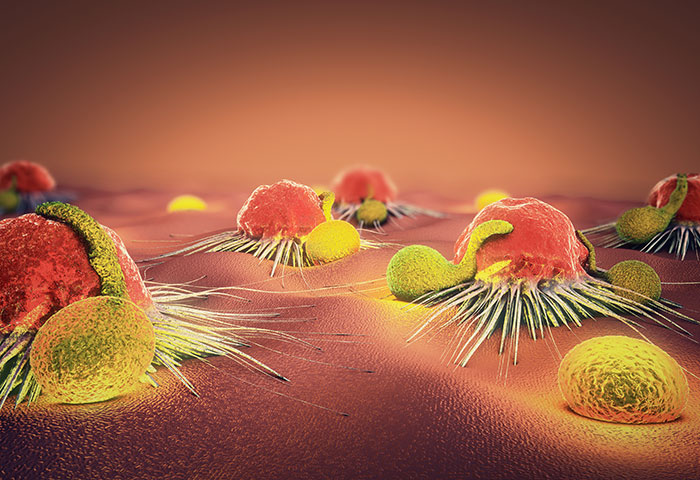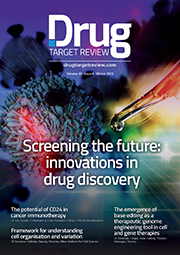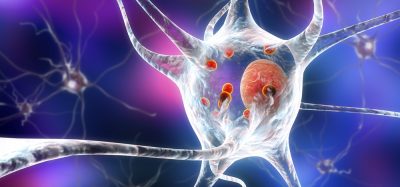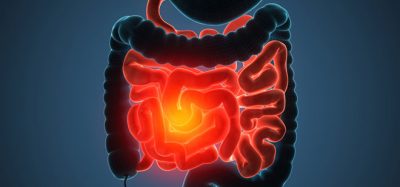Integrated fragment-based approach reveals enzymatic inhibitors with potential therapeutic application


ABOUT THIS WEBINAR:
- Overview of IDO1 structure and functions
- Rise and fall of current IDO1 inhibitors in immune-oncology
- The quest for next generation ligands of IDO1.
- Our integrated fragment-based approaches: focus on MST
- Discovery of chemical modulators of IDO1 non-catalytic signalling function
Indoleamine 2,3 dioxygenase 1 (IDO1) is an heme-containing enzyme that catalyses the conversion of L-Tryptophan (Trp) into a series of bioactive metabolites along the kynurenine pathway, eventually leading to immunoregulatory effects. These effects include induction of regulatory T-cell differentiation and activation, suppression of T-cell immune responses and inhibition of dendritic cell function.
On this basis, IDO1 is widely recognised as a valuable drug target for the development of immunotherapeutic small molecules in oncology. Although numerous chemical classes of potent IDO1 inhibitors that have been discovered, few compounds have progressed in clinical trials, while the most advanced drug candidate (Epacadostat) has unfortunately failed in phase III clinical trials in metastatic melanoma patients.
These disappointing results highlight the complexity of targeting IDO1 for drug discovery, and perhaps suggest a still elusive knowledge on its biological functions. Accordingly, next generation ligands are sought with the aim of investigating hidden and relevant aspects of IDO1 biology.
In this webinar, speakers presented results of integrated fragment-based approaches that have led to the discovery of the first ligands of IDO1 that are able to modulate non-catalytic signalling functions of the enzyme. They focused on MicroScale Thermophoresis (MST) as the cornerstone methodology of their discovery pipeline and concluded with an outlook on the impact of fragment-based approaches in the drug discovery of the post-genomic era.
KEYNOTE SPEAKERS:


Antonio Macchiarulo is Associate Professor of Medicinal Chemistry at the Department of Pharmaceutical Sciences of the University of Perugia (Italy). He received his PhD in Chemistry and Technology of Drugs in 2004 and was awarded a Marie Curie postdoctoral fellowship at the European Bioinformatics Institute in Cambridge (UK), where he worked on the specificity of substrate recognition by enzymes. He is actually member of the Scientific Committee of the European School of Medicinal Chemistry (ESMEC) and Coordinator of the PhD program in Pharmaceutical Sciences at the University of Perugia. He currently works in collaboration with Prof. Ursula Grohmann to develop novel therapeutic agents targeting Indoleamine 2,3-dioxygenase (IDO) in neoplasia and autoimmunity, leading a research unit in European ERC Ideas Advanced and Proof of Concept granted projects (ERC-2013-AdG 338954-DIDO; ERC-2017-PoC-780807-DIDO-MS).


Alice Coletti received her PhD in Chemical and Pharmaceutical Sciences from the University of Perugia in 2017, working in the framework of a European ERC Ideas Advanced granted project (ERC-2013-AdG 338954-DIDO) on the development of novel therapeutic agents targeting Indoleamine 2,3-dioxygenase (IDO) in neoplasia and autoimmunity. During her studies, she focused on the application of biophysical and analytical techniques (Microscale Thermophoresis, Circular Dichroism, Absorption Spectroscopy and Potentiometric Titration) to investigate ligand/target interactions. She also expanded her know-how on the use of different biophysical methods (Thermal Shift, Differential Scanning Fluorimetry, Surface Plasmon Resonance), working as visiting scientist in the research group of Prof. Helena Danielson at BMC of Uppsala University in Sweden. Alice Coletti is actually post-doctoral fellow at the Department of Pharmaceutical Sciences of the University of Perugia (Italy).
The rest of this content is restricted - login or subscribe free to access


Why subscribe? Join our growing community of thousands of industry professionals and gain access to:
- quarterly issues in print and/or digital format
- case studies, whitepapers, webinars and industry-leading content
- breaking news and features
- our extensive online archive of thousands of articles and years of past issues
- ...And it's all free!
Click here to Subscribe today Login here
Related topics
Clinical Trials, Drug Discovery, Drug Discovery Processes, Enzymes, Genomics, Immuno-oncology, Immunotherapy, Molecular Targets, Oncology, Small molecule, Stem Cells, T cells
Related organisations
NanoTemper Technologies








